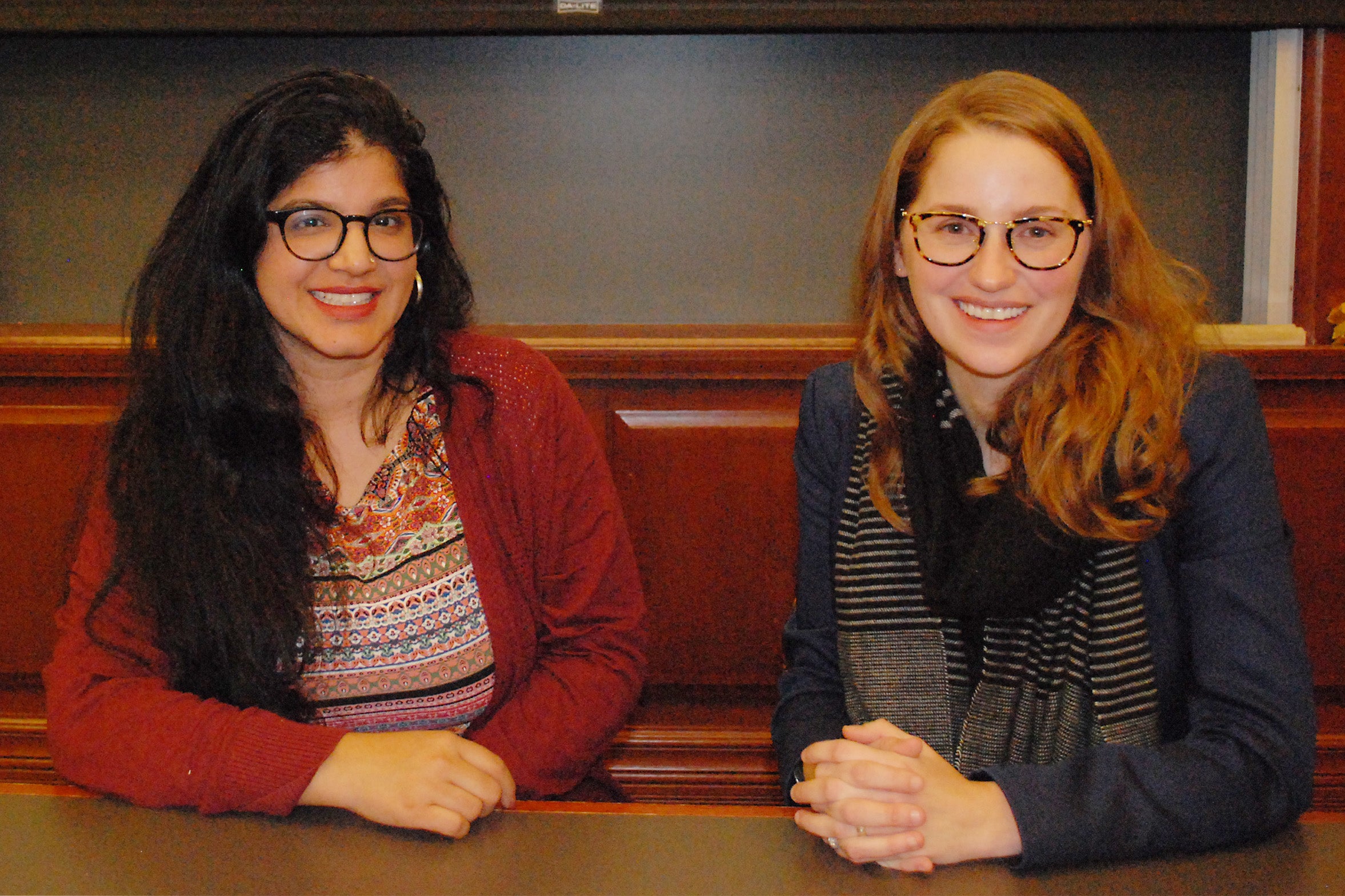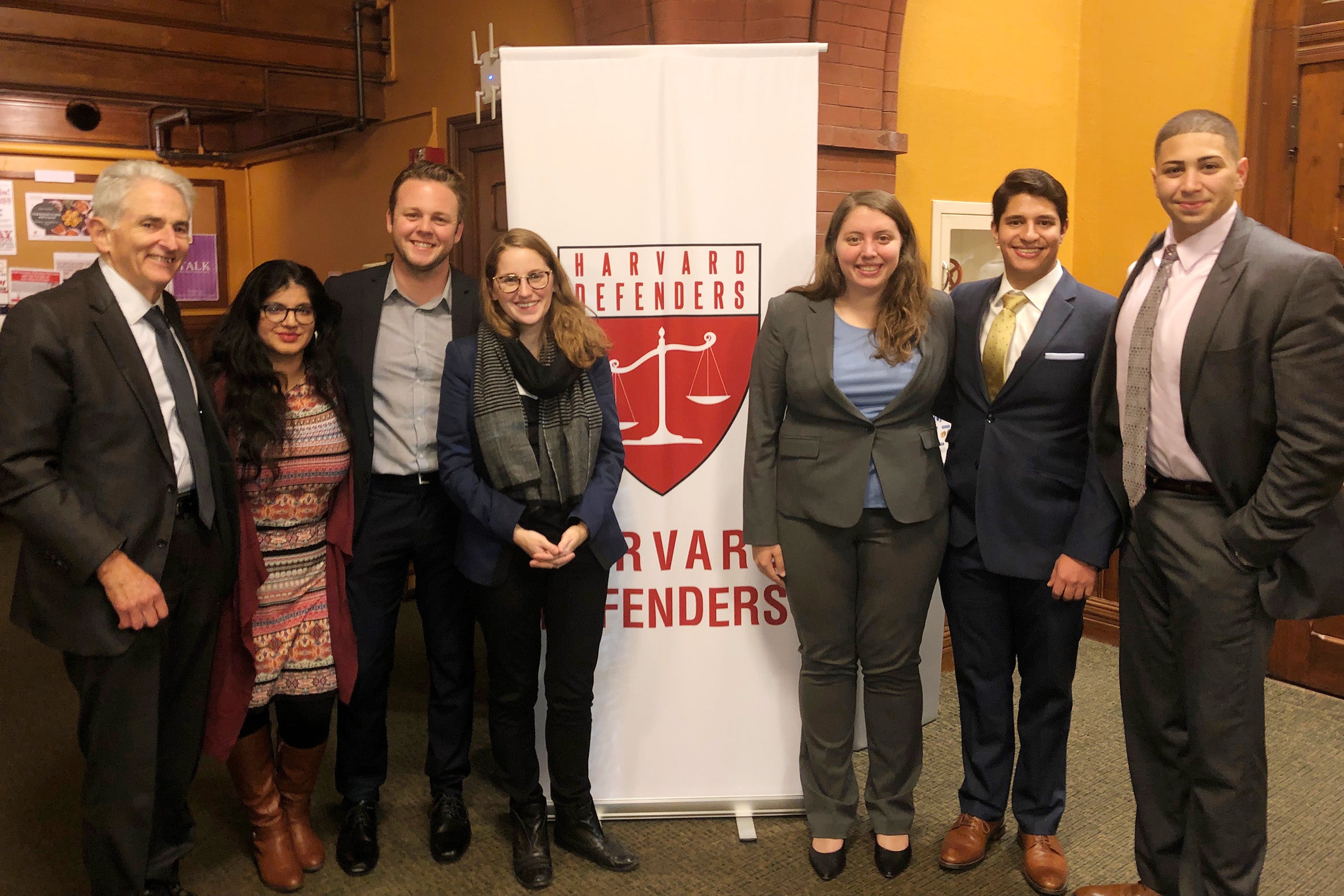Harvard Law School’s Harvard Defenders hosted the 7th annual Litman Symposium on Nov. 15. This year’s event, titled “Defining Justice: Building a more equitable criminal legal system,” featured a Q&A with keynote speakers Philadelphia Assistant District Attorney Sarah Boyette ’10 and Simmi Kaur ’17, an attorney with the Bronx Defenders.

The keynote speakers at this year’s Symposium were Simmi Kaur ’17, an attorney with the Bronx Defenders, and Philadelphia Assistant District Attorney Sarah Boyette.
The Jack T. Litman Program is dedicated to the memory of Jack T. Litman ’67, a member of Harvard Defenders during his time at the law school and a renowned defense attorney respected for his zealous advocacy on behalf of unpopular defendants. Litman’s sons, Benjamin ’06 and Sacha HKS ’03, established the fellowship in their father’s honor in 2012.
In his introduction, John Salsberg, a clinical instructor at Harvard Defenders since 1980, praised Litman’s dedication to criminal justice work. He said: “If Jack Litman were here today, he would be encouraging everybody to be criminal defense lawyers and he’d be really proud of our two speakers for what they do and what they have contributed to the criminal justice system.”
In their keynote Q&A, Kaur and Boyette shared insights and fielded questions about experiences that shaped their career paths, and their thoughts on the role of the criminal justice system in the United States.
Kaur, who served as president of Harvard Defenders and vice president of the Harvard Legal Aid Bureau while at HLS, is now an attorney in the criminal defense practice at Bronx Defenders. Born in India, she immigrated to the United States with her parents when she was 5. “Being around folks who were undocumented and with varying immigration statuses, kind of always put us out on the margin of the systems that existed,” said Kaur, “And that really got me thinking about the margins.”
Boyette, who previously worked with Brooklyn Defenders in Kings County, N.Y., joined the Conviction Integrity Unit of the Philadelphia District Attorney’s office, where she reviews convicted offenders claims of innocence and wrongful conviction. While at HLS, she served on the Harvard Journal of Law and Gender, was a member of Harvard Defenders and participated with the Criminal Justice Institute.
Reflecting on the role of the criminal justice system in society, Boyette said the question of how to pursue “the utilitarian goal of making sure to help people not hurt other people without perpetuating this country’s spectacular legacy of racism and marginalization” is a difficult one. “I think the answer is to radically rethink every tenet you have ever relied on and try to be really evidenced-based,” she said. She believes using science-based strategies to identify actual recidivism rates and risk assessments, rather than relying on lay intuition about what works, is a good way forward.
The Litman Fellowship supports three law school students as they work as Harvard Defenders during the summer. Through the fellowship, students gain practical experience in client interaction, legal research and oral advocacy, and they have the unique opportunity to handle all their own cases.
As part of the symposium, this year’s Litman Fellows—Marcos Cabello, Mary Lorenzo, and Sam Faisal—presented academic research on a legal issue they encountered during their fellowship. Cabello, a 2L at Boston University School of Law, presented on show-cause hearings and how hearings should be used as an alternative to prosecution. Lorenzo, a 2L at Boston College Law School, presented on mental health and the courts, and Faisal, second-year law student at Suffolk University, focused on family mediation in the criminal courts.
